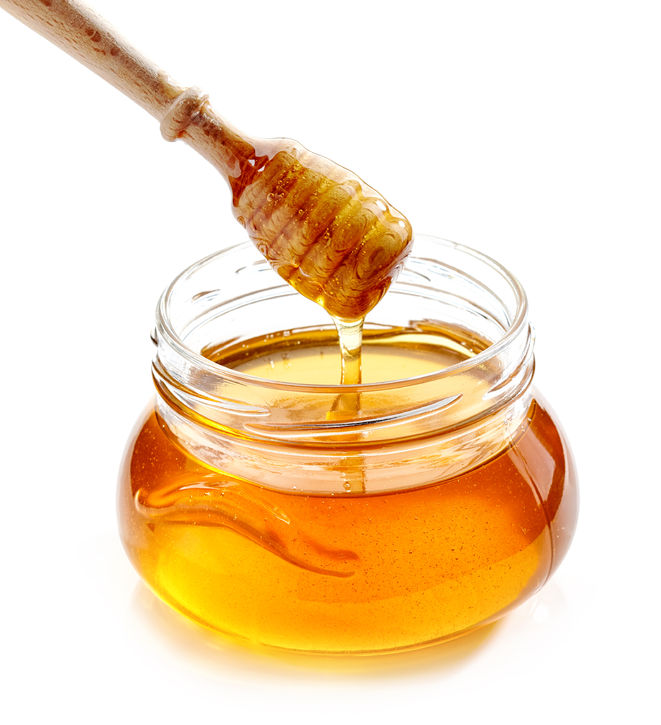Refined sugar has become one of the most common factors in several diseases such as diabetes, obesity, cancer, and cardiovascular diseases. Refined sugar has become a controversial topic in modern-day nutrition because most food manufacturers and suppliers sneak this ingredient into most food products available on our shelves. The problem is that we actually don’t realize how much sugar we consume, which is why we are so vulnerable to developing serious health issues in the long run. While there is no doubt that a little sweetness goes a long way in flavoring baked goods and food, there are natural alternatives that are healthy and do a great job of giving you the oomph you need in your morning cereal and coffee.
Why Is Refined Sugar So Bad For Us?
There are two different types of refined sugars used in food and beverage products today – sucrose, or more commonly known as table sugar and high fructose corn syrup. Table sugar is made from either sugar beets or sugar cane and is turned into a syrup by boiling and processing the sugar cane or beets. High fructose corn syrup is first extracted from milled corn to produce corn syrup. From there, enzymes are added to the corn syrup to enhance the sweetness and sugar content. Both these types of sugars are usually the main ingredient in most processed foods and since processed foods have become a cheap and tasty part of most western diets, we are consuming sugars at dangerous levels.
High sugar diets are thought to be the main culprit behind obesity in both children and adults in the USA. The reason for this is that both sucrose and high fructose corn syrup play a major role in leptin resistance. Leptin is a hunger hormone that helps regulate the appetite and signals the brain that the body has had enough food. Due to responses on hunger hormones like leptin, there is also an excess of fat storage and visceral fat, which leads to potentially dangerous diseases such as diabetes. In addition to excessive weight gain, high sugar diets also spell disaster for the heart. Sugar causes a rise in blood pressure and blood glucose levels as well as inflammation and cholesterol levels, all of which are major risk factors for developing cardiovascular disease. The soaring sugar-related cholesterol levels is also a high-risk factor for atherosclerosis or plaque build-up in the arteries.
So Are Natural Sugars Better?
This is a bit of a mixed bag as the natural sugars found in some unrefined or nutrient-dense foods are broken down and processed in almost the exact same way within the body. However, the main difference is these natural sugars are found in healthy unrefined foods that also contain various compounds, vitamins, and minerals that contribute towards enriching our bodies and our overall state of health.
Honey

Honey is the golden liquid of nature that has been providing sweetness and incredible health benefits to us for thousands of years. While honey does contain fructose and when eaten in frequent large doses can be just as harmful as sugar, in moderation, it is the perfect substitute that is packed with vitamins and minerals.
Raw honey that is manufactured from a trusted local manufacturer contains various phytonutrients, phenolic acids, flavonoids, and antioxidants that protect the body against oxidative stress and provide potent prebiotic, antifungal, and antibacterial properties.
When you drizzle this tasty syrup over your oats or tea, it also helps to soothe a sore throat. Studies have found that honey is almost as effective as a common ingredient found in most over the counter cold and cough mixtures known as dextromethorphan.
Coconut Sugar
Coconut trees should be next to the word incredible in the dictionary because that is just what they are – incredible! The humble coconut fruit can be made into MCT oil, four, oil, you name it! The palm itself is nothing short of amazing too. The sap from the palm’s flower is extracted to create a mouth-watering sugar that tastes and looks similar to regular brown table sugar, but the difference is that coconut sugar has a much lower glycemic index (GI) compared to refined alternatives. This means that it won’t wreak havoc on insulin levels, causing them to spike and crash rapidly.
In addition to its relatively low GI score, coconut sugar contains various nutrients such as potassium, calcium, iron, and zinc, which are all vital for maintaining proper bodily functions and boosting the immune system.
While coconut sugar is a better alternative to refined sugar, it is important to use it in moderation when cooking, baking, or adding it to your tea or coffee.
Blackstrap Molasses
Blackstrap molasses is sourced from sugar cane and sugar beet juice. The thick black liquid has a rich but sweet flavor that is commonly used by some on toast or over porridges. The flavor profile is quite unique and may not be appealing to most, but does make the perfect substitute for refined sugar in baked goods and marinades.
The benefit of using molasses to sweeten your favorite dishes is that it contains an extraordinary amount of antioxidants and nutrients such as calcium, iron, and potassium, which
All contribute to heart and bone health.
If the flavor profile is a bit too rich for you, use a combination of both molasses and coconut sugar to create your very own brown sugar alternative. Just pulse two tablespoons of molasses together with ½ a cup of coconut sugar in a food processor until it becomes a grainy texture. This mixture can also be used in most baking recipes.
Maple Syrup
Maple syrup is another favorite alternative to table sugar. The syrup is produced by boiling down sap that has been extracted from maple trees. Much like the alternatives we have already listed above, maple syrup also contains a substantial amount of vitamins and minerals including manganese, zinc, iron, calcium, and potassium.
Researchers believe that maple syrup may just be one of the better natural alternatives because it actually lowers plasma glucose levels compared to table sugar (sucrose). It is believed that the oligosaccharides, a type of carbohydrate, is responsible for the significant reduction in plasma glucose levels. Research also shows that oligosaccharides have promising protective properties against developing type 1 diabetes.
The Bottom Line
Refined sugars such as sucrose and high fructose corn syrup are hidden in almost every processed and packaged food on the shelves. And because some manufactures are not always transparent about this, we don’t actually realize how much refined sugar we are eating. This can be a dangerous game to play because high sugar diets are one of the leading factors behind diabetes, heart disease, and obesity.
On the other hand, natural sugars, which are found in whole unrefined foods are a healthier option because they not only sweeten your coffee but also provide your body with vital nutrients and vitamins needed to keep your health in check. Natural alternatives like honey, molasses, coconut sugar, and maple syrup are versatile and can be used in food, beverages, marinades, and homemade condiments. With that being said, it is important to remember that just like table sugar, these natural sweeteners should also be eaten in moderation.

